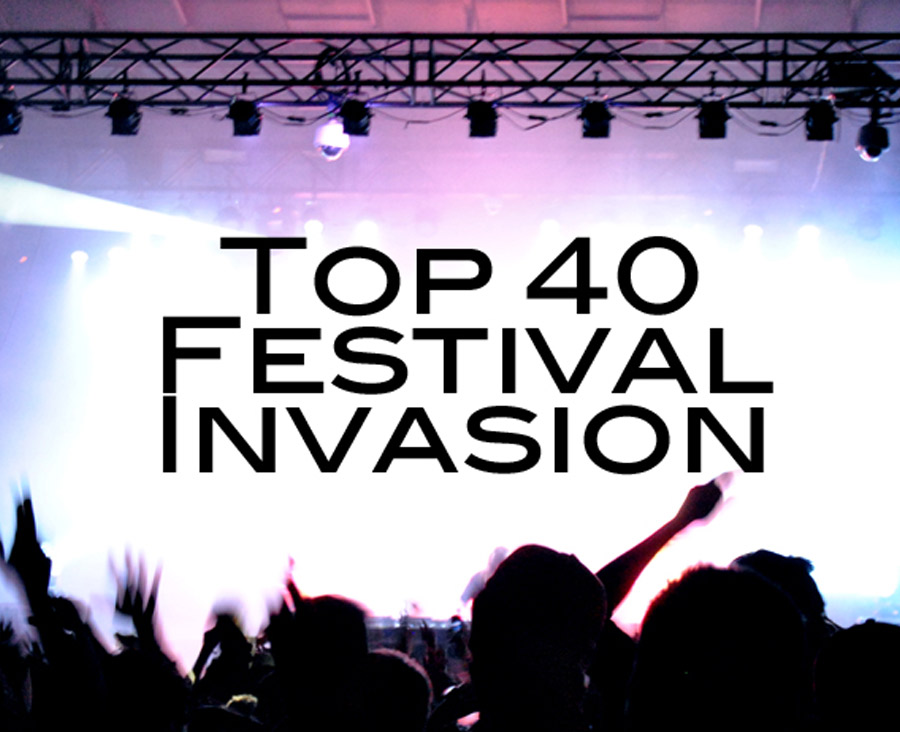There’s no hiding it, the festival scene right now is burgeoning with mainstream pop and R&B artists. Niche festivals appear to be dying out, struggling to stay afloat. Will they all succumb to a top 40 bill takeover?
We see this phenomenon in the UK in particular, where many small festivals once thrived. This year’s Glastonbury followed on from Beyonce’s headline performance with mainstage sets from the likes of Dizzee Rascal, Rita Ora and Professor Green, whilst the traditionally rock festival at Reading and Leeds introduced a new stage featuring grime, garage and hip-hop artists such as Wiley, Angel Haze and Waka Flocka Flame. Meanwhile V Festival has seemingly decided to focus almost entirely on MTV, top 40 acts with Emeli Sande, Ellie Goulding and Kendrick Lamar all enjoying prominent slots.
Festival purists resent moves to appeal to a wider audience. Nevertheless, the move may be crucial to ensuring long-term survival of these live music institutions. Although the metal-based Download Festival appears to be thriving, sadly many alternative events in the UK have been forced to downsize or dissolve altogether.
Sonisphere’s Knebworth event was cancelled in 2012, citing the economy and low ticket sales as the main reasons, despite boasting Kiss and Queen (with Adam Lambert) as headliners. This year’s Hevy Fest featured Black Flag and Killswitch Engage, and yet, despite trying to reschedule as an indoor show, it too was eventually forced to cancel.
Alternative festivals may find resisting excessive commercialisation difficult, both in attracting fans and financing. One worry for the old school is that mainstream artists across all festivals will lead to events losing their identities and differences. With so much of TV and radio focusing on music in the charts, festivals are often rare chances for fans to get all of their favourite music together in one place—without the filler.
There’s another burglar threatening to steal music festivals away from the real music fans. Celebrities, “IT” girls and reality stars have all gate crashed the festival scene too (Coachella’s new status as a fashion show is a prime example in the US), leaving a worse taste in your mouth than the burger van on the final day—although festival cuisine now seems more of a draw than the music for some (Ostrich burgers at Glasto anyone?).
However, is the argument of a mainstream invasion really such a worrying issue? Or is it just a bad rumour like the “girl who fell” in one of those port-a-loos?
Reading and Leeds still boasted a strong alternative presence on the Main Stage, and Eminem as a headliner is certainly nothing new, having also topped the bill back in 2001.
Another major plus point for a wider music range at festivals is the variety of styles that is provided by broader artists. Genre fusion has always been a key part of alternative music, and allowing different artists to interact and share a stage will surely lead to innovations in sound and staging that can only serve to see festivals evolve and not stagnate. In addition to this, pop music appears to have realised the importance of live shows and touring in recent years, leading to a major improvement in the quality of performance. The massive recent tours by the likes of Rihanna and Taylor Swift emphasise that pop acts certainly do have a place in the live music calendar, whilst the entertainment and production values they utilise make for an entertaining set regardless of whether or not you’re a fan of the music.
Much of the fun of going to festivals is discovering new things, especially new music and the opportunity to be introduced to a new genre or band certainly can’t be considered a negative.
Whatever your opinion regarding increasingly mainstream acts on festival bills, it seems (for the larger events in particular) they’re here to stay. Fans vote with their feet. So the fact that these festivals continue to thrive and the acts continue to avoid being bottled off stage suggests that fans have either accepted the change, or, heaven forbid, actually enjoy the sets.
There are still plenty of smaller niche festivals in the UK. For example, Dead Punk Festival in Bristol this year was one of the best all-day shows I’ve ever attended. It showed that, despite a number of high-profile festival cancellations in recent years, there are still places for alternative music fans to escape the charts. Meanwhile, the big festivals continue to provide enough variety to find or discover something you like.
And hey, if you don’t like the music, stay in your tent, or fall in a port-a-loo, just don’t spoil it for the rest of us!

